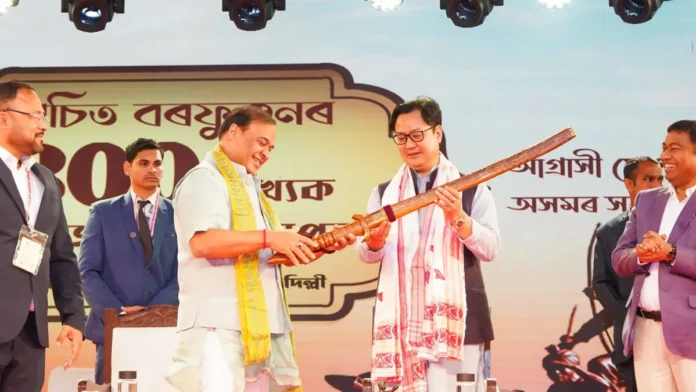Amidst the ongoing discourse surrounding the Citizenship (Amendment) Act, 2019, the northeast finds itself embroiled in a contentious issue over the potential resettlement of Chakma and Hajong refugees. The recent remarks made by Union minister Kiren Rijiju have reignited a fresh debate, leaving many questioning the stance of the BJP’s leadership in the region.
Rijiju’s statement suggesting the relocation of Chakma and Hajong refugees from Arunachal Pradesh to Assam has sparked widespread discussions and raised concerns among various stakeholders. The proposition has triggered a divide within the BJP’s northeast leadership, with differing opinions emerging on the matter.
While some view the resettlement as a pragmatic solution to address the plight of the refugees and ease tensions in Arunachal Pradesh, others express apprehension about the potential repercussions of such a move. The proposed relocation has prompted questions about its feasibility, implications for the socio-cultural fabric of both Assam and Arunachal Pradesh, and the broader ramifications for indigenous communities in the region.
Critics argue that the resettlement could exacerbate existing demographic challenges and strain already limited resources in Assam, further fueling tensions in the region. Additionally, concerns have been raised regarding the legal and logistical complexities surrounding the implementation of such a plan.
More About It
The differing perspectives within the BJP’s northeast leadership underscore the complexity of the issue and highlight the need for careful deliberation and consultation with all stakeholders involved. As discussions continue, it remains uncertain how the party will navigate this sensitive issue and reconcile the divergent views within its ranks.
The debate surrounding the resettlement of Chakma and Hajong refugees underscores broader concerns about citizenship, identity, and indigenous rights in the northeast. With the region being home to diverse ethnic communities, any decision regarding resettlement must be approached with sensitivity and consideration for the interests of all stakeholders.
As the discourse evolves, it is imperative for political leaders, policymakers, and civil society members to engage in constructive dialogue and seek inclusive solutions that uphold the principles of justice, equity, and respect for diversity. Only through collaborative efforts can the region effectively address the complex challenges posed by migration and citizenship issues while safeguarding the rights and aspirations of its diverse populace.



